Comments
- No comments found
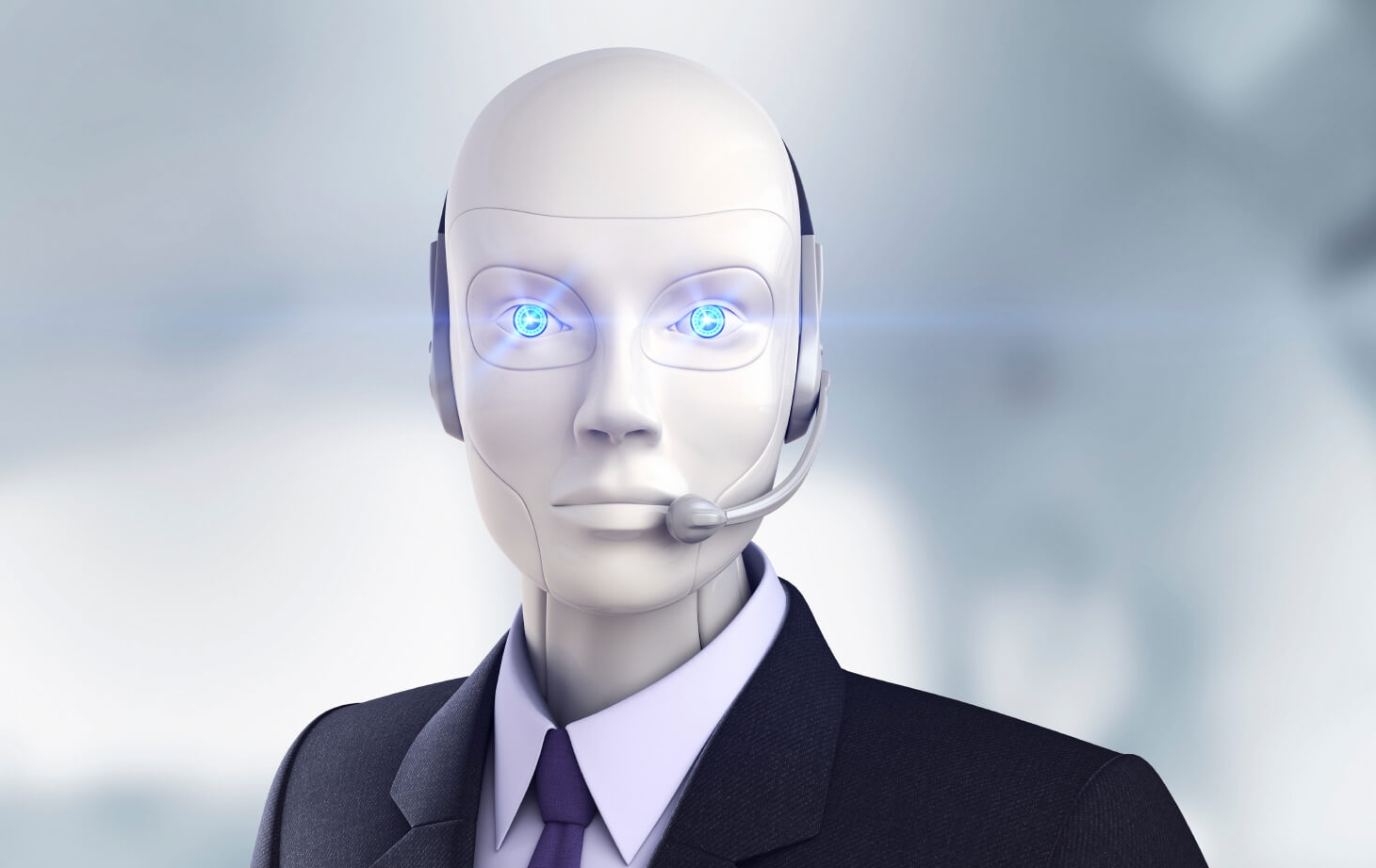
Artificial intelligence (AI) has virtually unlimited applications that are part of our everyday life.
It offers countless solutions across all industries. Artificial intelligence is a major market player in the business world. AI plays a key role in data analysis, marketing, finance, business, advertising, medicine, technology, science and engineering where machines are learning from stimuli and reacting in ways more human than ever before. Artificial intelligence has several advantages and disadvantages, so it's important to know how to use it to maximize its potential within your organization.
Artificial intelligence is intelligence demonstrated by machines, as opposed to the natural intelligence displayed by humans or animals. It applies to computing systems designed to perform tasks usually reserved for human intelligence using logic, if-then rules, and decision trees. AI recognizes patterns from vast amounts of quality data providing insights, predicting outcomes, and making complex decisions.
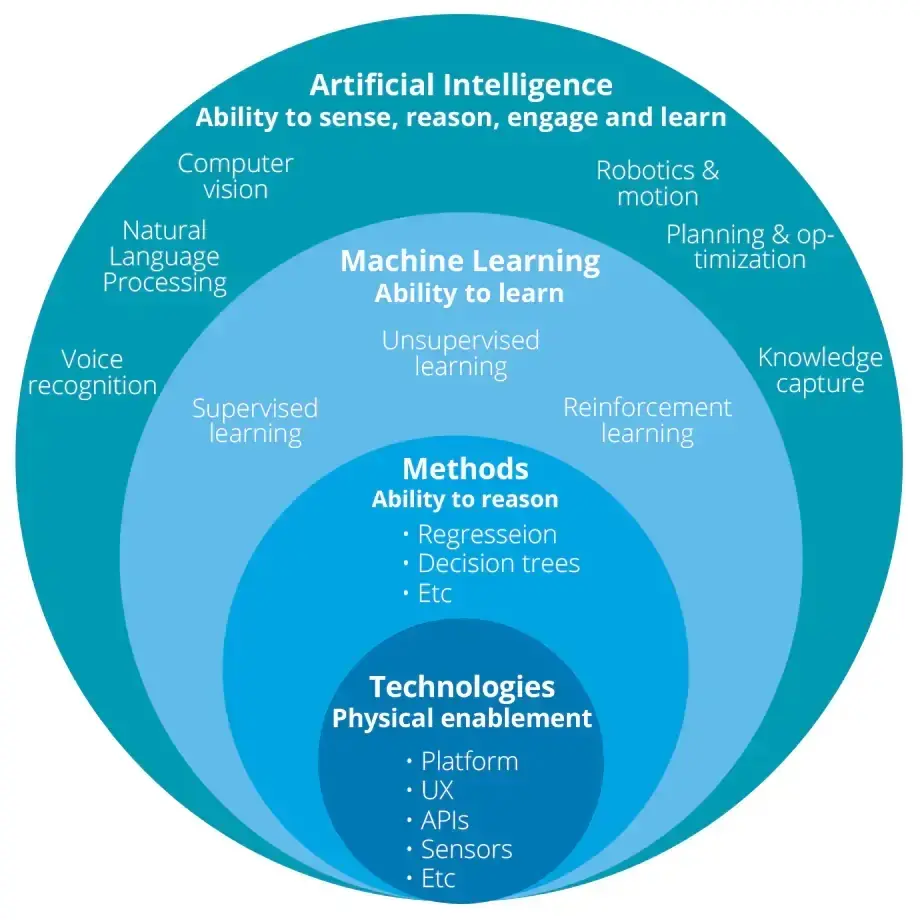
Over the past few years, more and more companies have been experimenting with AI, advancing their data-related capabilities, acquiring new technologies and talent, and integrating AI into their business processes. In coming years, AI will likely become even more pervasive. Just as we no longer talk about isolated mobile strategies (they’re just part of doing business), AI will soon become standard and routine—maybe even faster than we expect. Here are 4 of its most popular subsets:
Machine learning (ML): With machine learning technologies, computers can be taught to analyze data, identify hidden patterns, make classifications, and predict future outcomes.
Deep learning (DL): Deep learning is a subset of machine learning based upon a conceptual model of the human brain called “neural networks.” It’s called deep learning because the neural networks have multiple layers that interconnect.
Natural language processing (NL): Natural language processing is the ability to extract or generate meaning and intent from text in a readable, stylistically natural, and grammatically correct form.
Computer vision (CV): Computer vision is the ability to extract meaning and intent from visual elements, whether characters (in the case of document digitization) or the categorization of content in images, such as faces, objects, scenes, and activities.
Artificial intelligence has many advantages, but also disadvantages, and everything will depend on how AI will be used or misused.
Artificial intelligence has massive potential for creating a better world to live in. The most important role for humans will be to ensure that the rise of the AI doesn’t get out of hand.
1) Less Human Errors: There is less room for error with artificial intelligence.
2) Doing More Complex Tasks: Artificial intelligence can perform a more laborious task with extra hard work and with greater responsibility.
3) Available 24/7: Educational Institutes and Helpline centers are getting many queries and issues which can be handled effectively using AI.
4) Providing Digital Assistance: Virtual assistants inside smartphones, PCs, or connected home speakers, like Apple’s Siri, Microsoft’s Cortana, Google’s Google Now, Samsung’s Galaxy S8’s Bixby and Amazon’s Alexa, provide contextual information.
5) Assisting Humans in Repetitive Tasks: In banks, we often see many verifications of documents to get a loan which is a repetitive task for the owner of the bank. Using AI Cognitive Automation the owner can speed up the process of verifying the documents by which both the customers and the owner will be benefited.
6) More Productive: Emotions are not associated with artificial intelligence robots and therefore the mood doesn’t hamper the efficiency. Thus they are always productive.
7) Educating The Next Generation: Nowadays, medical professionals are trained with artificial surgery simulators. It uses applications which help in detecting and monitoring neurological disorders and stimulate the brain functions.
8) Right Decision Making: The integration of AI tools in the business world has improved the efficiency of organizations.
1) It's An Expensive Technology: It’s true that artificial intelligence comes with a high cost, but there is no such thing as a free lunch either. It requires huge costs as it is a complex machine. Apart from the installation cost, its repair and maintenance also require huge costs.
2) Lack of Emotion and Moral Values: No matter how smart a machine becomes, it can never replicate a human. Machines are rational but very inhuman as they don’t possess emotions and moral values. They don’t know what is ethical and what’s legal and because of this, don’t have their own judgment making skills.
3) No Feelings: Artificial intelligence doesn’t have feelings and because of which there is nothing like working with a whole heart or with full passion for them. There is no sense of belonging or togetherness or a human touch.
4) Still Not Creative Enough: The current artificial intelligence is still narrow and isn't creative. They can only do what they are being taught or commanded. Though they help in designing and creating, they can’t match the power of a human brain.
5) Destroying Jobs: If in the future, human beings don’t add to their skills, then in no time, we can see that they will be replaced with machines.
6) Relying Too Much on AI Leads To Addiction: As we rely on machines to make everyday tasks more efficient, we risk technology addiction.
7) Making Humans Feel Lazy: Artificial intelligence applications automate the majority of tedious and repetitive tasks. Since we do not have to memorize things or solve puzzles to get the job done, we tend to use our brains less and less. This addiction to AI can cause problems to future generations.
8) No Ethics: Ethics and morality are important human features that can be difficult to incorporate into an AI. The rapid progress of AI has raised a number of concerns that one day, AI will grow uncontrollably, and eventually wipe out humanity. This moment is referred to as the AI singularity.
9) Security risks: Despite AI being a breakthrough in technological advancement, it's still no exception to cyber criminals. This is because AI gathers, stores, and processes a significant amount of data, making it more prone to exposure with malicious actors. Not only that, but it's also vulnerable to infiltration of malicious code or data, resulting in erroneous or malicious results to your business. So, as you integrate AI into your business, you should implement proper cybersecurity measures including IT support to ensure data security and safety.
Businesses can use artificial intelligence to simplify the work of their employees in the following ways:
There are a vast number of things that artificial intelligence can do on a daily basis:
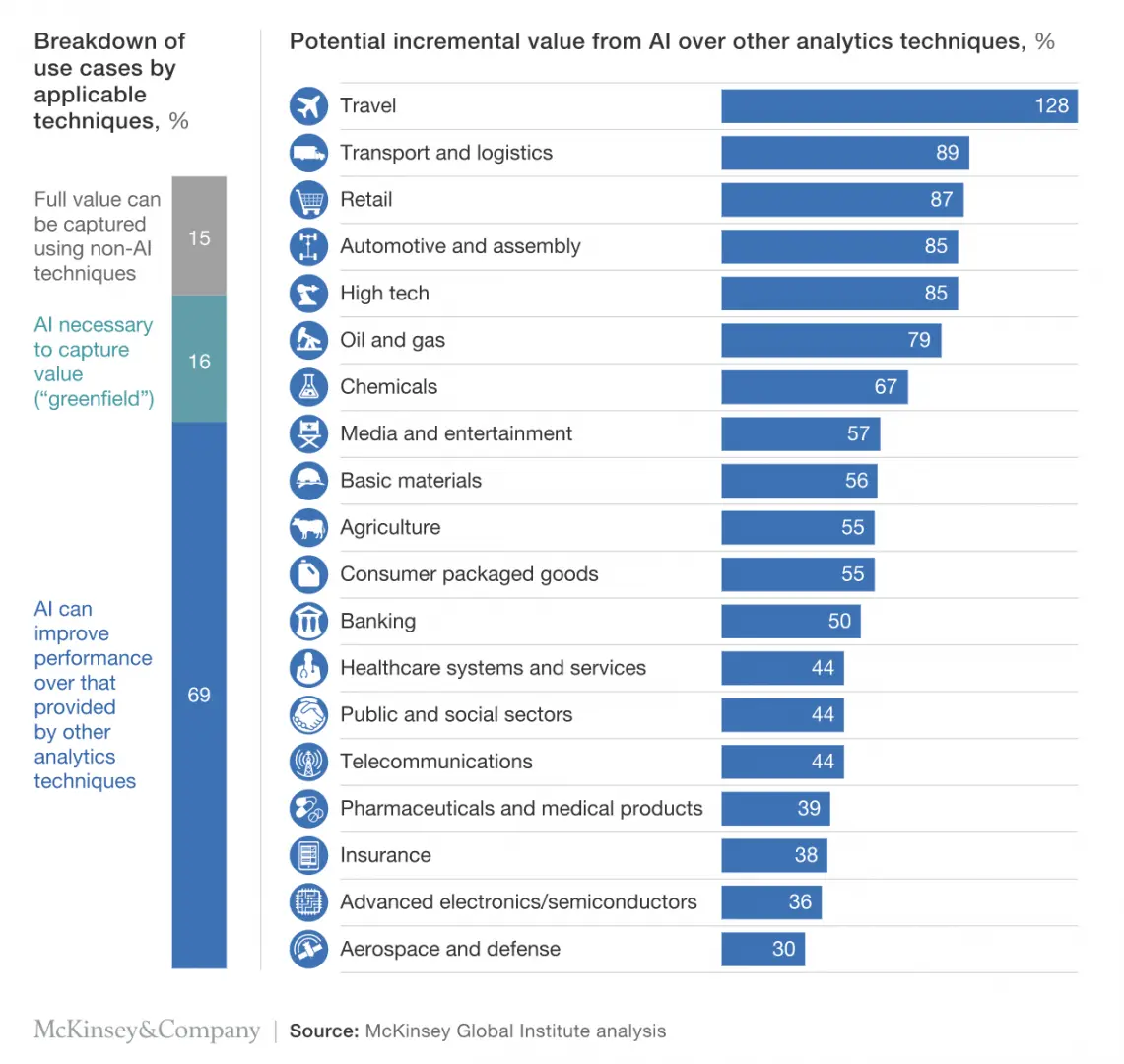
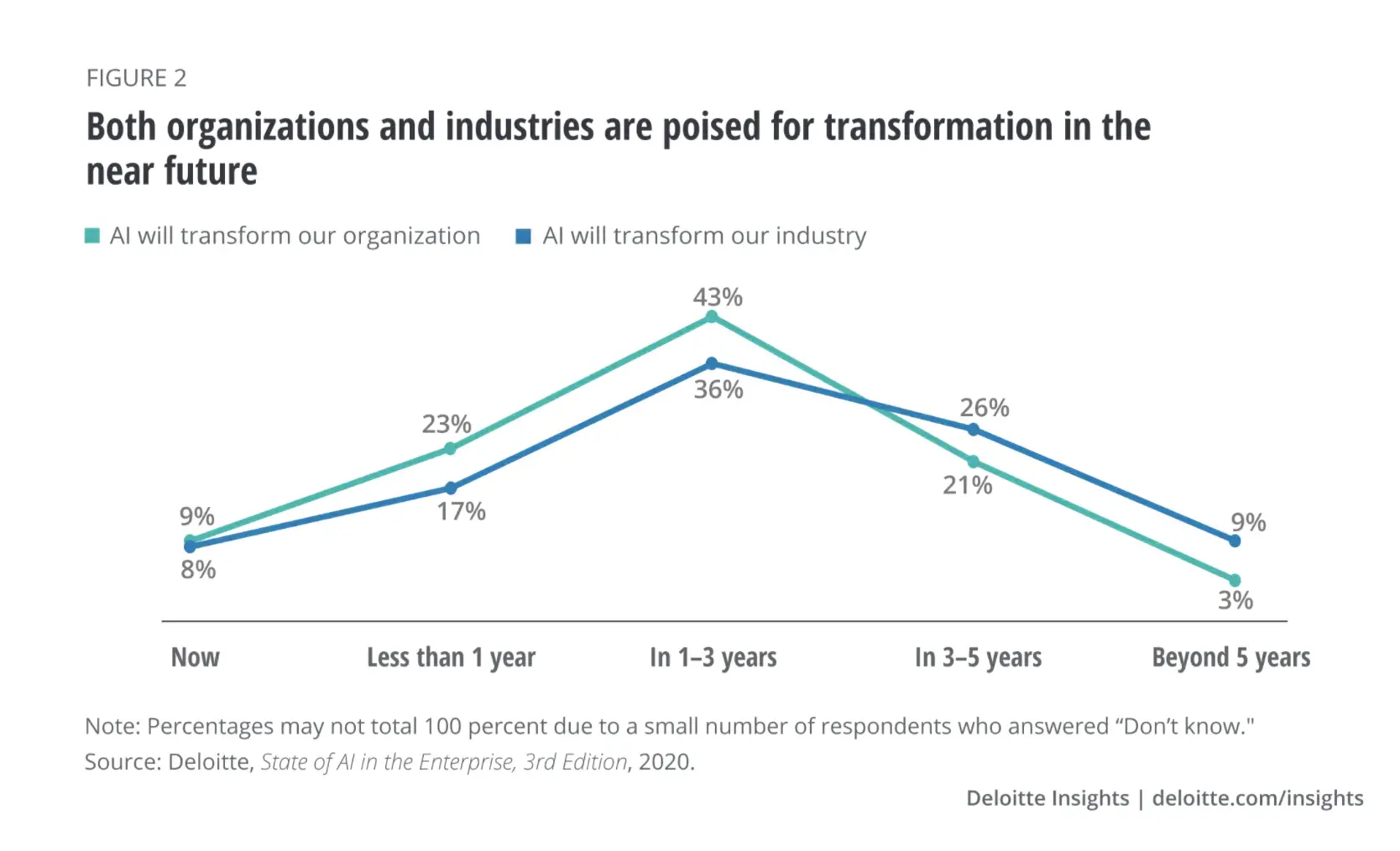
Many business executives are thinking about AI in terms of cost savings and efficiency. Organizations also invest in many artificial intelligence solutions to enhance their IT department, cybersecurity, production, manufacturing, engineering, construction and product development. Business functions such as marketing, human resources, legal, and procurement can also be enhanced thanks to artificial intelligence.
Automate a process or function that would normally be done by a human—for example, automating back-end operations, managing cloud and IT networks, or detecting patterns in video
Optimize the efficiency of a process or function—for example, preventing fraud, identifying defective products, finding errors in software code, or personalizing advertising placement
Enhance the ability of individuals to accomplish tasks or enable them to do something they typically could not—for example, forecasting demand, improving compliance, augmenting threat detection by security analysts, diagnosing a patient, identifying a problem with a mechanical system, or drawing out new customer insights
Over the past few years, more and more companies have been experimenting with AI, advancing their data-related capabilities, acquiring new technologies and talent, and integrating AI into their business processes. In coming years, AI will likely become even more pervasive. Just as we no longer talk about isolated mobile strategies (they’re just part of doing business), AI will soon become standard and routine—maybe even faster than we expect.
As a result, companies that already have an AI-powered edge should continue differentiating themselves. Companies that haven’t yet adopted AI technologies should begin to accelerate efforts across their products, processes, and talent.
As late entrants begin to catch up with industry leaders, AI adopters should consider focusing on three actions to maintain their edge (see figure 3):
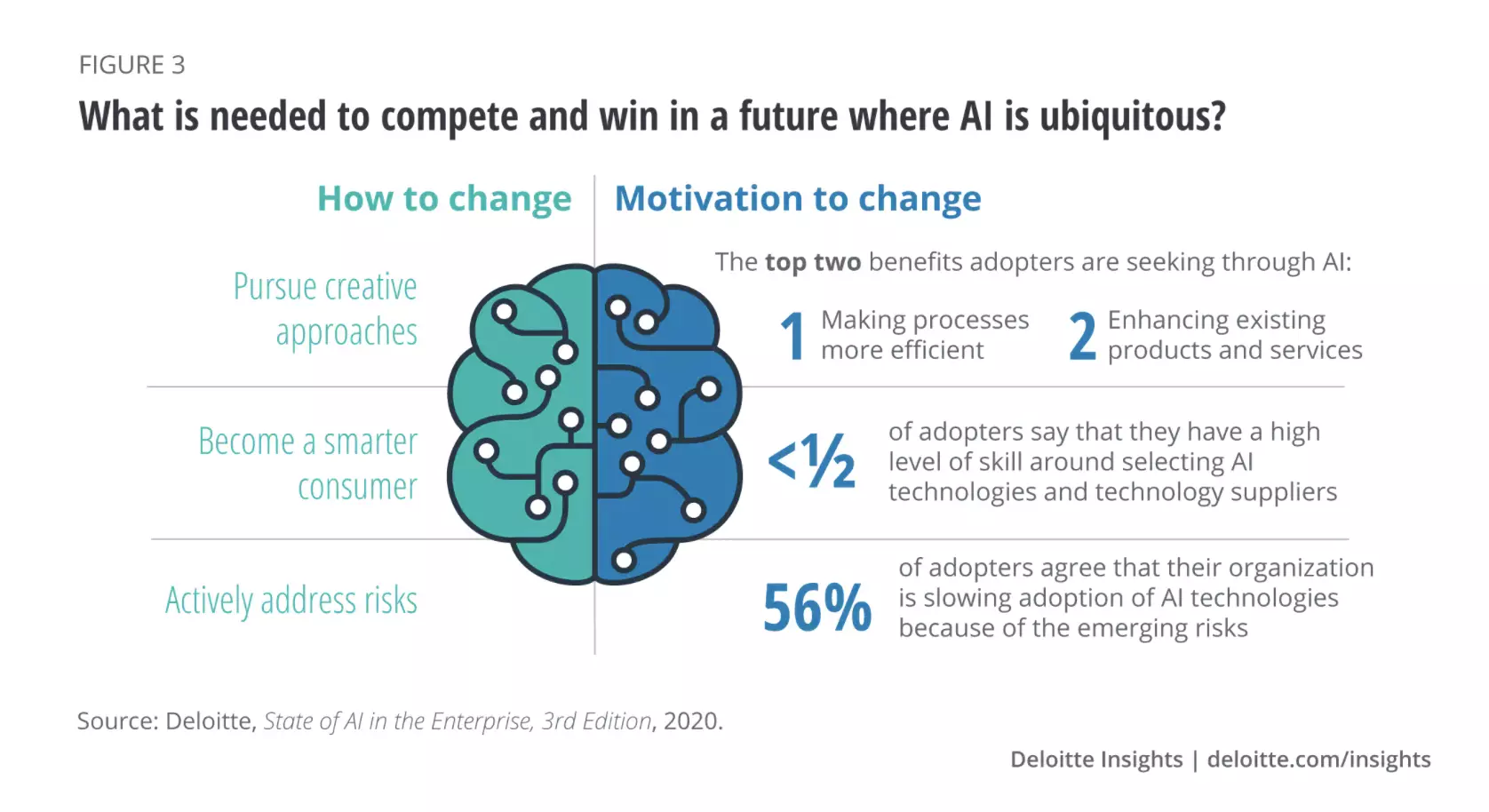
Whether we realize it or not, artificial intelligence is all around us and playing an active role in our daily lives. Every business and every professional should carefully evaluate the advantages and disadvantages of artificial intelligence. It has served us pretty well and has made life easier in various ways, but it's important to strike the right balance.
Leave your comments
Post comment as a guest